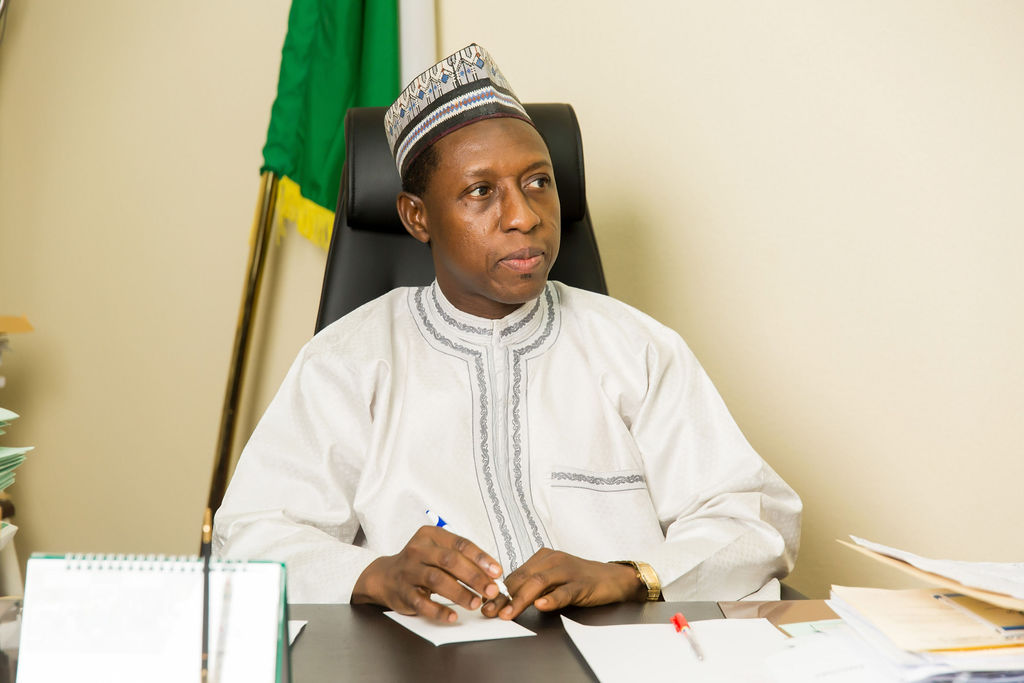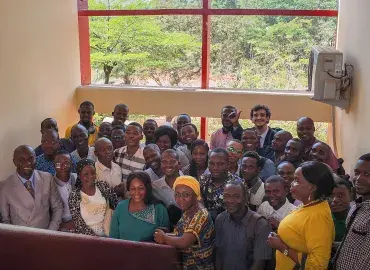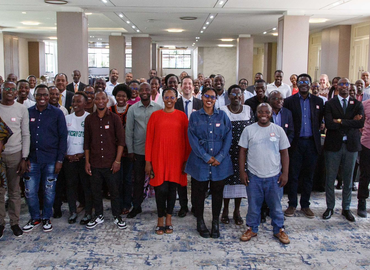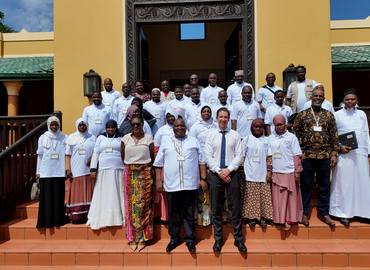Dialogue Promotes Rights and Inclusion in Nigeria

Prof. Tawfiq Ladan is the Director General of the Nigeria Institute of Legal Studies and an expert in human rights, gender and development law. Following the recent peace conference in Nigeria, Prof. Ladan spoke with KAICIID about ways to address social and political inequality through citizen empowerment and the strengthening of regional peace architectures.
What challenges is Nigeria facing in terms of its ethnic and religious diversity, and how does this contribute to conflict?
This is a very fundamental question and one which I must say is troubling. For a country like Nigeria, in 60 years, we haven’t realised that we are a multi-religious society.
We need to promote our multi-culturalism, our multi-ethnic and religious identities. Constitutional federalism accommodates all these divergences and gives us an opportunity to retain our identity. Then we can use our diversity as a strength, not as a divisive mechanism.
So far, we have lacked the political will to understand why we need to build infrastructures to identify and manage conflicts which stem from our differences or multiple national identities. The least we can do is to allow an institutional platform to manage conflict.
Nigeria has human rights policies, but would you say they are well-implemented? Additionally, how effective are they at empowering citizens?
You cannot have a multi-ethnic religious society, and then a society that is also run on multiple administrations of justice, legal systems and multiple languages and cultures.
What we seem to have done, in order to enable us to promote and imbibe the culture of dialogue for peace and conflict reconciliation, is to not allow our institutions of governance to grow. We don’t enhance their capacity. We deliberately weaken their administrations and we don’t learn any lessons.
And because we don’t learn any lessons, we always think that we can have our cake and eat it too. In many other developed countries, they allow institutions of governance to work. For example, executive and legislative branches have limitations, and you also have an empowered public.
On the one hand, even if we have the institutions to manage conflict, we cannot strengthen them when the public itself is not empowered. Where will these government institutions turn to if their powers are being eroded by political actors? We need to value public opinion.
On the other hand, if we say we’ve established national policies, we have national laws, we have national institutions, then we must also strengthen our infrastructure for peace, justice and reconciliation. We need to dismiss the argument that, “oh, we can’t trust state and local government in managing huge resources.” Then why should there be any trust in government institutions at their core? Some of these arguments and perceptions must be dismissed. We need to allow those government institutions to play their role.
How can interreligious dialogue and cooperation with policymakers address Nigeria’s inequality issues and help foster more inclusive policies?
Interreligious dialogue is an offshoot of the culture of peace, justice and reconciliation. Because, imbibing the culture of peace, in itself, is about fostering institutional changes or a change in the behaviour of people in terms of their way of life or in their rejection of violence.
We must strengthen the infrastructure of interreligious dialogue, peace, justice and reconciliation, up to the local government levels.
First you need a policy direction, and we have it. Second, you also need to translate the policy instrument into a plan of action. Then, you need to clearly define the roles of each actor in the relevant sectors. But from my experience, the missing link is allocated resources at the federal, state and local government levels, for us to speak the same language and then translate the policy into practical reality and impact.
We need to strengthen the architecture of interreligious dialogue, then promote better understanding among political actors in order for them to strengthen the institution of governance, including traditional institutions at the grassroots level.
What role should the media play in promoting stability and peace in Nigeria?
Section 22 of Nigeria’s constitution raises the profile of the mass media: “The press, radio, television and other agencies of the mass media shall at all times be free to uphold the fundamental objectives contained in this Chapter and uphold the responsibility and accountability of the Government to the people.”
The media has, at times, contributed negatively to the situation. When the polity is not stabilized by the role of the media, in terms of its own contribution, it has adverse effects on the architecture of peace in the country. It also provides a foundation for the perception that you cannot trust the mechanism for accessing justice and for the delivery of justice.
The mass media must participate in helping the existing infrastructures for interreligious dialogue, peace, justice and reconciliation to promote diversity and foster religious tolerance.

As the Sustainable Development…


